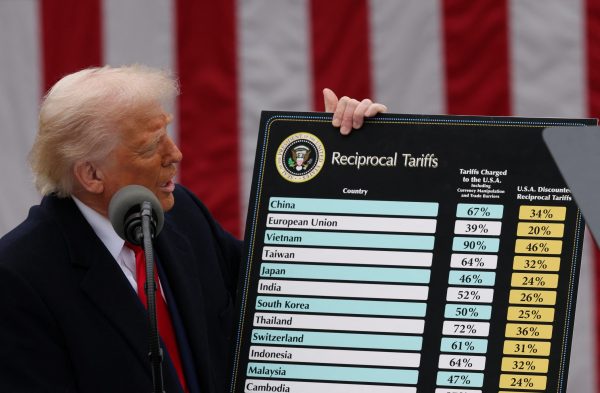
Despite the government’s, often boastful, claims that the Greek economy is on the right path citing datasheets and GDP growth, the reality for many Greeks does appear to align with these claims.
While the Greek economy is indeed recording solid figures, its citizens are becoming impoverished, and the situation could worsen over time, as analysts had pointed out in an article in the Financial Times (FT) published a few months ago.
Greece is now compared to Bulgaria when examining the citizens’ purchasing power parity (PPP)—an indicator measuring the price of specific goods in different countries and is used to compare the absolute purchasing power of the countries’ currencies, and is widely accepted as a more accurate metric compared to GDP to determine the standard of living in a country—and the Greek economy has not yet managed to reach pre-crisis levels.
The rise in the Greek economy seems to have slightly improved the standard of living for Greeks relative to the EU average in recent years, but not enough to lift them from their position as the poorest in the eurozone.
GDP per capita was close to the EU average until 2009, after which 10 member-states overtook Greece in living standards. Today, Greece is the second-poorest country in the EU after Bulgaria and remains at the bottom of the eurozone. “As the gap with Bulgaria narrows sharply, it is not unreasonable to expect that Greece will soon become the poorest country in the EU,” the FT article pointed out at the time, sparking much debate in the Greek political scene.
The Financial Times posits that these figures are attributed to the aftermath of the economic crisis and the subsequent austerity measures that followed, as Greece slashed spending dramatically, and taxes soared to secure a bailout from the IMF and the EU. This led to a squeeze on businesses and households and the ultimate collapse of the economy, as the article noted. The scale of economic damage was rare for peacetime.
As a result, the Greek economy today is approximately 19% smaller than it was in 2007, despite the country’s recovery after the pandemic, while the EU’s economy as a whole has grown by 17%.
FT reports that real wages in Greece declined at a steady rate until 2022 – based on the most recent available data from the OECD – falling by 30% from pre-economic crisis levels.
In Greece, various studies have calculated that the shadow economy makes up between 20 to 30% of GDP, an unusually high percentage for a developed country. It is estimated around 4-5 percentage points above the average of the European Union.
Source: tovima.com
Latest News

Trump Tariffs Jeopardize Growth: Piraeus Chamber of Commerce
The tariffs, aimed at reducing the U.S. trade deficit, are expected to have both direct and indirect effects on the European economy

EU Condemns Trump Tariffs, Prepares to Retaliate
As tensions escalate, the EU is expected to continue negotiations with Washington while preparing for potential economic retaliation.

The Likely Impact of Trump Tariffs on Europe and Greece
Trump tariffs are expected to negatively affect economic growth in the Eurozone while Greece's exports could take a hit.

Motor Oil Results for 2024: Adjusted EBITDA of 995 mln€; Proposed Dividend of 1.4€ Per Share
Adjusted EBITDA for 2024 was down 33% yoy. The adjusted profit after tax for 2024 stood at 504 million euros, a 43% decrease from the previous year

Cost of Living: Why Greece’s 3% Inflation Is Raising Alarm
Greece appears to be in a more difficult position when it comes to price hikes, just as we enter the era of Trump’s tariffs.

Fitch Ratings Upgrades the Four Greek Systemic Banks
NBG’s upgrade reflects the bank’s ongoing improvements in its credit profile, Fitch notes in its report, including strong profitability, a reduction in non-performing exposures (NPEs), and lower credit losses

Trump to Announce Sweeping New Tariffs Wednesday, Global Retaliation Expected
With Trump's announcement just hours away, markets, businesses, and foreign governments are bracing for the fallout of one of the most aggressive shifts in U.S. trade policy in decades.

Inflation in Greece at 3.1% in March, Eurostat Reports
Average inflation in the eurozone settled at 2.2%, compared to 2.3% in February

Greece’s Unemployment Rate Drops to 8.6% in February
Despite the overall decline, unemployment remains higher among women and young people.

Jerry Kalogiratos Highlights Key Role of Energy Transition and Data Demand in LNG Outlook
Energy transition and the prospects of LNG were discussed at Capital Link’s 19th Annual International Maritime Forum, during a panel discussion with Jerry Kalogiratos (Capital Clean Energy Carriers Corp.)
























![ΕΛΣΤΑΤ: Αυξήθηκε η οικοδομική δραστηριότητα κατά 15,6% το Δεκέμβριο [πίνακες]](https://www.ot.gr/wp-content/uploads/2025/03/DSC9655-2-1024x569-1-90x90.jpg)

















 Αριθμός Πιστοποίησης
Αριθμός Πιστοποίησης